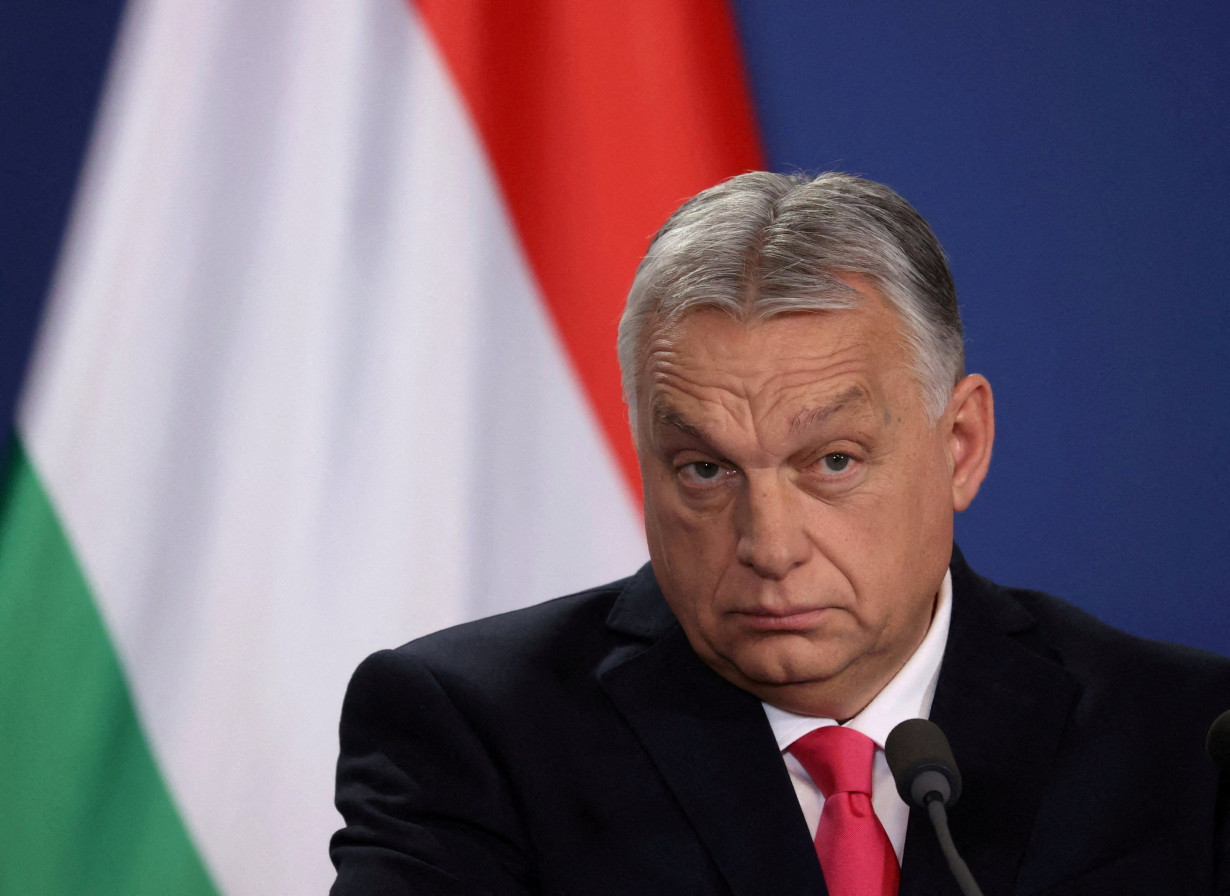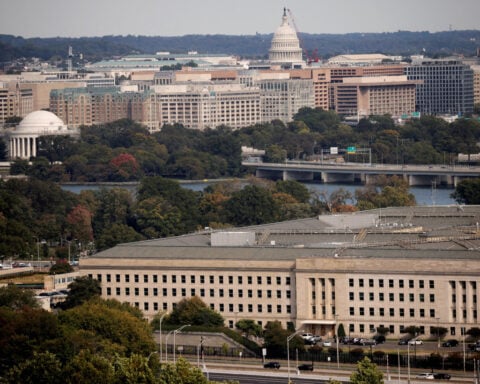By Gergely Szakacs and Anita Komuves
BUDAPEST (Reuters) - Magyar Telekom and rival telecoms company One have abandoned plans to adjust their fees to inflation this year, they said on Wednesday, shortly after Hungary's banks announced fee reductions amid government pressure to lower costs.
Hungary has endured the worst inflationary surge in the 27-state European Union since Russia's 2022 invasion of neighbouring Ukraine, and prices remain a big concern for households in the run-up to a 2026 national election.
Faced with an inflation rebound to the EU's highest levels at the start of 2025, Prime Minister Viktor Orban launched food price controls in mid-March, while calling on banks and telecoms companies to curb prices to arrest heady services inflation.
In power since 2010, Orban has frequently intervened over prices and borrowing costs to shield consumers from what his government has said are unjustified increases, with some of the measures drawing criticism from investors and rating agencies.
"For foreign investors, this is business as usual," ING economist Peter Virovacz said. "The Hungarian government trying to lower inflation in some way or another, as inflation is the most painful point as the elections are approaching."
Virovacz said the measures could have a minor impact on services inflation and it was unclear whether consumers' high inflation expectations would decline.
Magyar Telekom, whose profits surged last year after it indexed its prices to the previous year's double-digit inflation rate, said it would abandon a similar adjustment this year, holding off on the measure until after the 2026 ballot.
"Taking into account the Hungarian economy's developments and the governmental measures aimed at limiting the inflation, the Company decided not to implement the earlier announced inflation-based fee adjustment for its consumers," it said.
Rival provider One also said it would abandon the inflation adjustment and cut some prices for consumers.
Hungary's banks, including OTP, Erste Bank, Raiffeisen and KBC also announced various price cuts and delayed plans to raise prices this week amid pressure from Orban's government.
Lenders earned what the central bank has described as "outstandingly high" profits last year, helped by some one-offs but also strong underlying profitability.
Services inflation ran at 7.5% year-on-year in March, below February's 9.2% reading, but still sharply above the Hungarian central bank's 2% to 4% policy target range.
On Tuesday the central bank said U.S. President Donald Trump's new tariffs posed a risk of higher inflation, while curbing economic growth, calling for a continued tight monetary policy stance.
(Reporting by Gergely Szakacs; Editing by Gareth Jones)

 Trump has begun another trade war. Here's a timeline of how we got here
Trump has begun another trade war. Here's a timeline of how we got here
 Canada's leader laments lost friendship with US in town that sheltered stranded Americans after 9/11
Canada's leader laments lost friendship with US in town that sheltered stranded Americans after 9/11
 Chinese EV giant BYD's fourth-quarter profit leaps 73%
Chinese EV giant BYD's fourth-quarter profit leaps 73%
 You're an American in another land? Prepare to talk about the why and how of Trump 2.0
You're an American in another land? Prepare to talk about the why and how of Trump 2.0
 Chalk talk: Star power, top teams and No. 5 seeds headline the women's March Madness Sweet 16
Chalk talk: Star power, top teams and No. 5 seeds headline the women's March Madness Sweet 16
 Purdue returns to Sweet 16 with 76-62 win over McNeese in March Madness
Purdue returns to Sweet 16 with 76-62 win over McNeese in March Madness








